#chinese study blog
Radical Vocabulary Valentines edition! Taking a slightly different approach with the words that have more than one character.
HOP to the base of the post for a “how-to” use the flashcards (they are a little out of the box)
Quick Guide:
Word meaning in CAPITALS, & literal character meanings in bold.
Literal character meanings in CAPITALS, and radical components inBOLD CAPITALS.







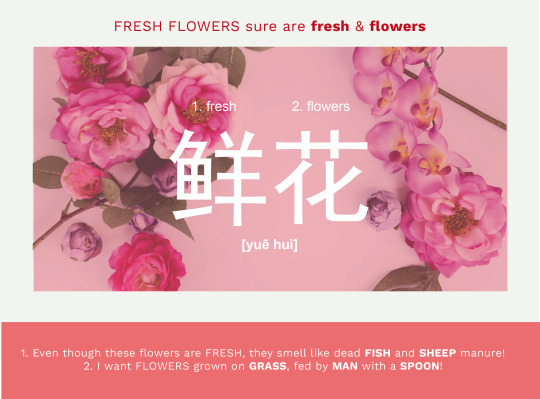


A little how-to on how to read/use the flashcards, as they are a little different:

WORD + CHARACTER MEANING
The top sentence approaches the word from a character based perspective. Breaking down each word into the individual characters and their root meanings. (Good if you already know these characters).
Word meaning in CAPITALS, & character meanings in bold
RADICAL COMPONENTS within characters
The bottom sentences, reference the numbered characters in the image. They tackle the word from a radical approach. These sentences are used for primarily memorising the stroke composition within each character.
Individual character meaning in CAPITALS, and radicalsinBOLD CAPITALS.
I hope it makes sense, i feel like it may be a little convoluted but room for improvement!
Let me know what you think.
Check out my other Radical Colour Flashcards: HERE
and vocab pack 01 HERE
Thought i’d try a slightly different approach, particularly for the nouns to remember them. By breaking down individual meanings of the radicals within each character + pairing with a context driving trigger sentence. With Chinese, the radicals tell a story of how the word came to be, so perhaps looking at Chinese characters through that approach will encourage another level of long-term memory.
**Radical meanings are in bold + the vocabulary is CAPITALISED

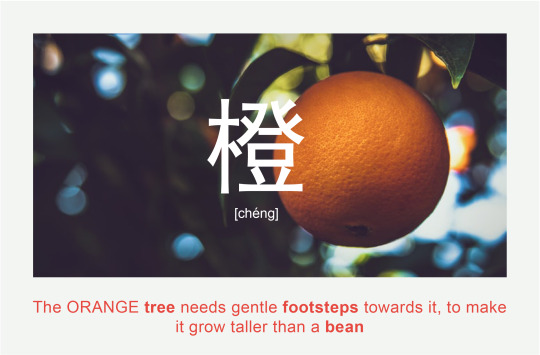
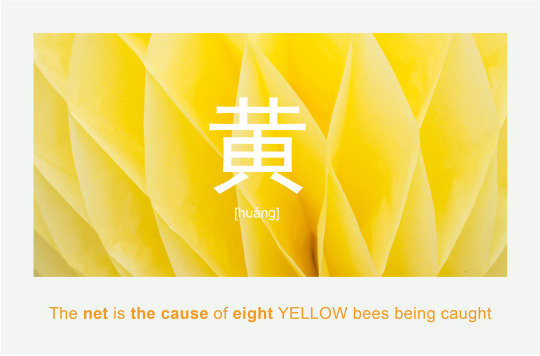





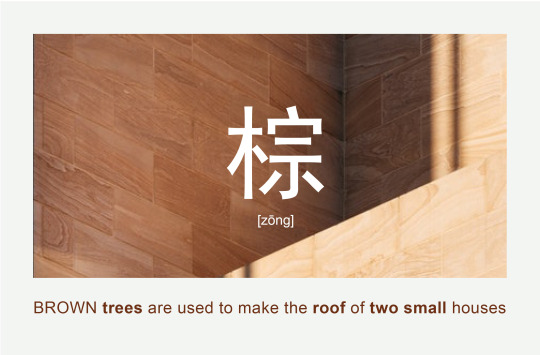
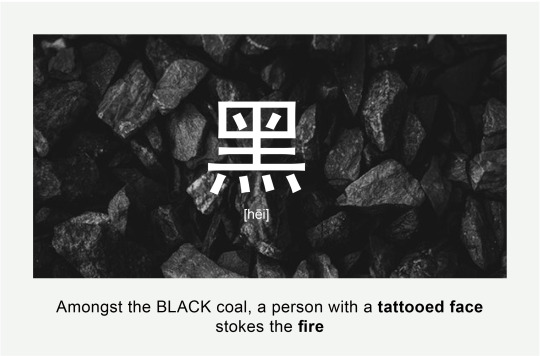
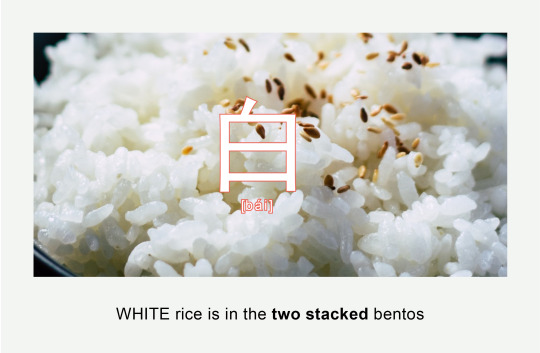

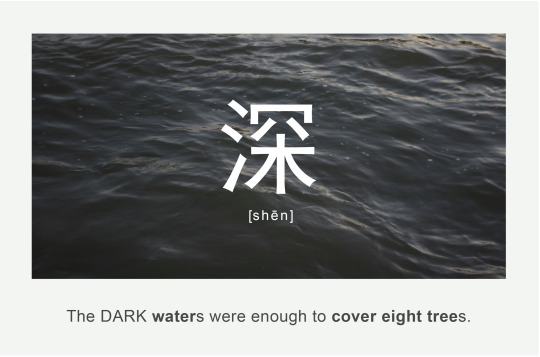

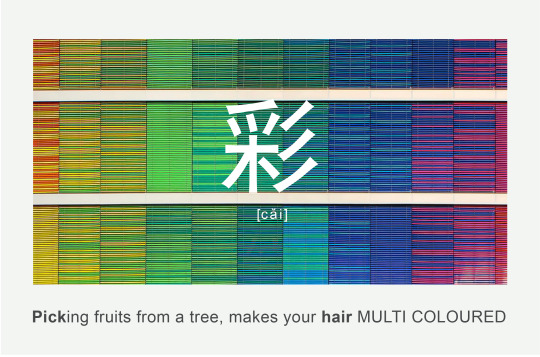
Thought i’d try a slightly different approach, particularly for the nouns to remember them. By breaking down individual meanings of the radicals within each character + pairing with a context driving trigger sentence. With Chinese, the radicals tell a story of how the word came to be, so perhaps looking at Chinese characters through that approach will encourage another level of long-term memory.
**Radical meanings are in bold + the vocabulary is CAPITALISED


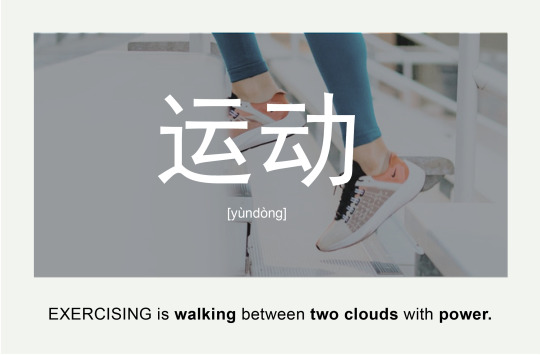

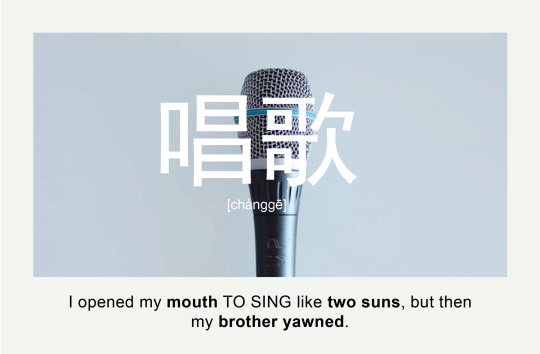

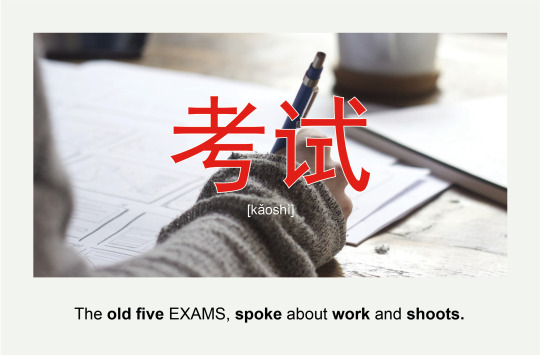



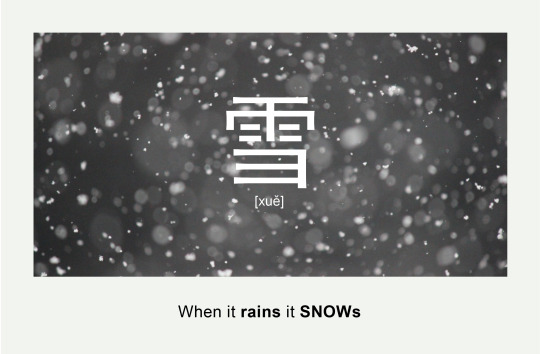
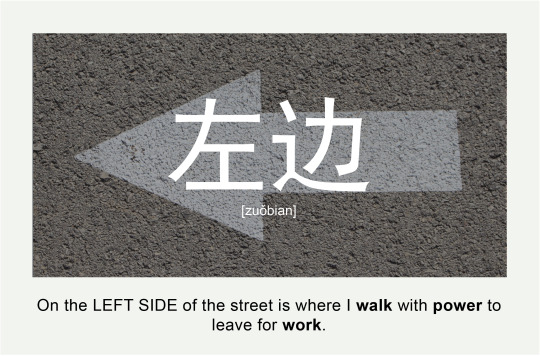





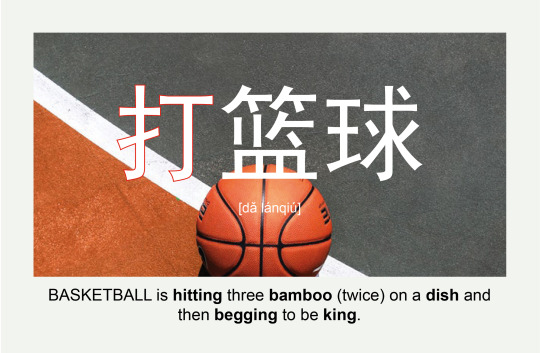
1. Find a language partner on Hellotalk/Tandem

Talk over the phone with your language partner, it may be daunting at first but stick with it and you will really see the benefits in terms of your every day speaking. It’s free and you can make a new friend. If you are uncomfortable, try sending audio messages through the app and build the confidence to speak on the phone. It may be best to find a partner who is willing to do half the time entirely in chinese, half entirely in English, or you speak entirely in chinese, them entirely in English. If you have a partner who doesn’t seem genuinely willing to help you speak Chinese and only wants to practice English, move on!
2. Pay for 1-1 lessons on iTalki etc.

Over Hellotalk it may be difficult to make your teacher explain everything clearly and keep repeating certain things you missed because you may feel it’s just for chatting. With a teacher they also have better experience teaching so you’ll waste less time, they know what you are trying to say already (because teachers do have the magical power, they’ve seen hundreds of students before too)
I myself last semester hired a Chinese teacher and during our lessons I came prepared with all my questions and things I wanted to practice and the lesson must have been really boring for her, but I paid for lessons so I wanted to get the most benefit for myself, ha!
Additionally, if you have Wechat/Alipay you can find a teacher over Hellotalk and cut out the agent fee on apps like iTalki!
3. Listen more! (and repeat the audio material out loud)

Listening to podcasts, especially situational ones, such as ChinesePod and CSLpod are the best for improving everyday speaking, you can get used to the rhythm and words used in everyday speech. You can also listen to bilibili or Youtube content creators who are speaking naturally to a camera. Listen more and you naturally can improve your speaking also. Haven’t you ever met those English non-natives who have good accents and speak well, ask them why and they often say they watch a lot of American TV?
4. Record yourself on your phone talking about a topic

Sometimes there are times when I want to learn about a topic but don’t have a partner to discuss. It also gives you time to ‘slow down’ and really think about the words you want to say and how to get your point across because you are less nervous. For example, I am interested in politics and nutrition, but when talking with somebody the conversation may go into a different direction and I can’t practice the words I wanted, I therefore occasionally record myself talking on a topic. It is also good to keep as a record of progress and to re-listen for your own mistakes, particularly in tones and grammar!
Do you have any other tips? Share them in the comments!
Hi all. Lately with the virus here in China I have been stuck inside studying. I am also been watching a few new shows in my spare time lately. Here are some of my favourite for intermediate-lower advanced listeners.
Firstly, where can you watch shows?
There are an abundance of places to watch shows, especially within China but you can often find shows on Youtube or on various C/K/J-drama sites outside (though if you can it’s best to watch with only Chinese subtitles).
Tip: If you can’t understand everything, watch once with English subs, and re-watch again with Chinese subs only!
Anyway, on to my list, I have split these between TV series and reality shows:
TV Series
1. 都挺好

This is a story about family life and the burden children may feel of their parents, it reflects modern day Chinese social issues. I really enjoyed this drama
2. 亲爱的,热爱的
I have just started watching this one. It is a love story and the main character became really popular in China last year!

3. 欢乐颂
This is sometimes called the Sex and the City of China, its about working women in the city of Shanghai!

Variety/reality
1. 爱情保卫战
This is one of my favourites! It’s a talk show where two people go on to solve their romantic issues and four ‘experts’ give them advice. Its spoken in very natural Chinese and is very interesting to see people arguing about “He was looking at another girl” or “he has changed since we first met” haha!

2. 非诚勿扰
This is the ‘Take me out’ of China, kinda… It’s essentially the same format without the crude jokes, tho. Sometimes they have foreigners on the show looking for love too.

3. 外国人在中国
This show is good for intermediates as there are foreigners speaking, the level is easier to understand in general and discusses basic things such as daily life. It also can give you a glimpse into people’s lives who are here studying too!
What are you favourite shows? Share them with us below!
